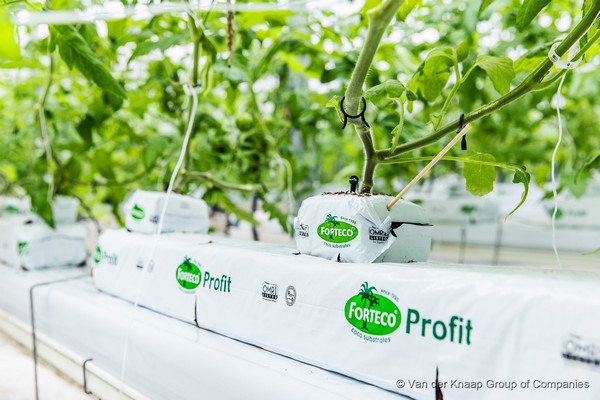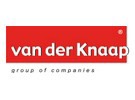In 2022, they noticed at Van der Knaap Group that social and economic developments were boosting the future of sustainably produced coco substrates. Two years on, they can say that during that time the demand for coco substrates has increased enormously. Not only in the Netherlands, but worldwide the area of crops grown on coco substrates is growing.

Backward integration
"Given the sustainable and circular nature of coco, this was in line with expectations. What we did not foresee, however, is that demand would increase even more strongly than we initially estimated. That offers opportunities," said Jelte Veenstra, COO at Van der Knaap Group. Such an increase in demand for coco products can be challenging. "Thanks to backward chain integrations, however, we ensure that we can continue to meet the increasing demand. For example, we are investing heavily in expanding the capacity of our production facilities in Sri Lanka, India, and the Dominican Republic."
In addition, construction of a new factory in the Philippines will start within a few months. The company has deliberately chosen to build a new factory in a different region to guarantee product supply security through geographical diversification. "With the construction of a new production facility, we are expanding Forteco's production capacity. Here we will produce a new type of coco substrate, Optimum, which is made from the whole husk of the coconut. The reactions from our customers using this new coco product are very positive," said Veenstra.
Responsible (coco) production
An increase in the number of growers switching to coco substrates also means that the need for certification for coco is growing. That is why last year, under the leadership of the RHP, the sector started developing a certification scheme for responsible coco production: Responsibly Produced Coir. This describes the social and environmental aspects of the responsible production of coco. A workgroup of coco production companies, Glastuinbouw Nederland and the certifying body IMO Control has now drawn up a draft scheme. It is expected that companies will be able to start using it by mid-2025.
Knowledge centre 'de Kas'
In its own innovation centre 'de Kas', Van der Knaap also conducts continuous research. Veenstra explains, "We do research into new substrates and applications, but also into improvements of our products. The focus lies on both the short and medium term. In the field of coco substrates, the concentration level of tannins and the EC value of the material are important topics. Through newly developed production techniques, we can produce coco growbags that meet the desired standard. As a result, they can be used in closed systems without any problems and the processing and reuse of drain water is no longer a problem."
For more information:
Van der Knaap Groep
Postbus 136
2290 AC Wateringen
Tel: +31 174 296606
www.vanderknaap.info
[email protected]
